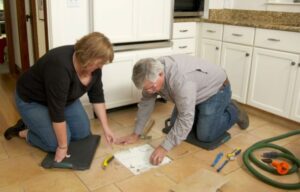Precision and reliability are critical in the healthcare industry, where the success of a medical device or surgical tool can directly affect patient outcomes. Medical CNC machining plays a crucial role in producing high-quality components that meet the stringent demands of the medical field. But what exactly is Medical CNC machining, and how is it applied in healthcare?
What Is Medical CNC Machining?
Medical CNC machining refers to the use of Computer Numerical Control (CNC) machines to manufacture complex and precise medical components. This process involves programming computer-controlled tools—such as mills, lathes, and grinders—to remove material from a solid block (metal or plastic) and shape it into a finished medical part with tight tolerances.
Unlike traditional manual machining, CNC technology automates and digitizes the manufacturing process, allowing for superior accuracy, repeatability, and efficiency—qualities essential in producing surgical-grade devices and instruments.
How Is It Used in the Healthcare Industry?
1. Surgical Instruments
Medical CNC machining is widely used to produce surgical instruments such as forceps, clamps, scalpels, and scissors. These tools must be made to exact specifications to ensure optimal performance during critical procedures.
2. Orthopedic Implants
CNC machines are used to manufacture custom and standard implants like hip joints, knee replacements, spinal rods, and bone plates. These parts often require biocompatible metals like titanium or stainless steel and must be tailored to each patient’s anatomy.
3. Dental Components
In dentistry, CNC machining creates highly accurate components such as crowns, bridges, abutments, and orthodontic tools. The precision of CNC machining ensures proper fit and function for each individual case.
4. Prototyping and Customization
Medical product developers use CNC machining to quickly prototype new designs. The ability to modify digital files and rapidly produce physical parts allows for faster innovation and testing, which is especially beneficial in personalized medicine.
5. Diagnostic and Lab Equipment
Many CNC-machined parts are used in medical diagnostic devices, lab equipment, and imaging machines. These components require reliable performance under repeated use and sterile conditions.
Benefits of Medical CNC Machining
-
High Precision: Delivers parts with tight tolerances required in surgery and diagnostics.
-
Material Versatility: Can machine biocompatible materials like titanium, PEEK, and medical-grade plastics.
-
Repeatability: Ensures consistent quality across high and low-volume runs.
-
Speed and Efficiency: Speeds up the development of new medical devices and custom solutions.
-
Regulatory Compliance: Enables traceability and documentation to meet FDA and ISO standards.
Conclusion
Medical CNC machining is a vital technology in the healthcare industry, supporting the production of high-precision, reliable, and customized medical components. From surgical instruments and implants to diagnostic tools and dental devices, CNC machining plays a critical role in advancing patient care through innovation and accuracy.

